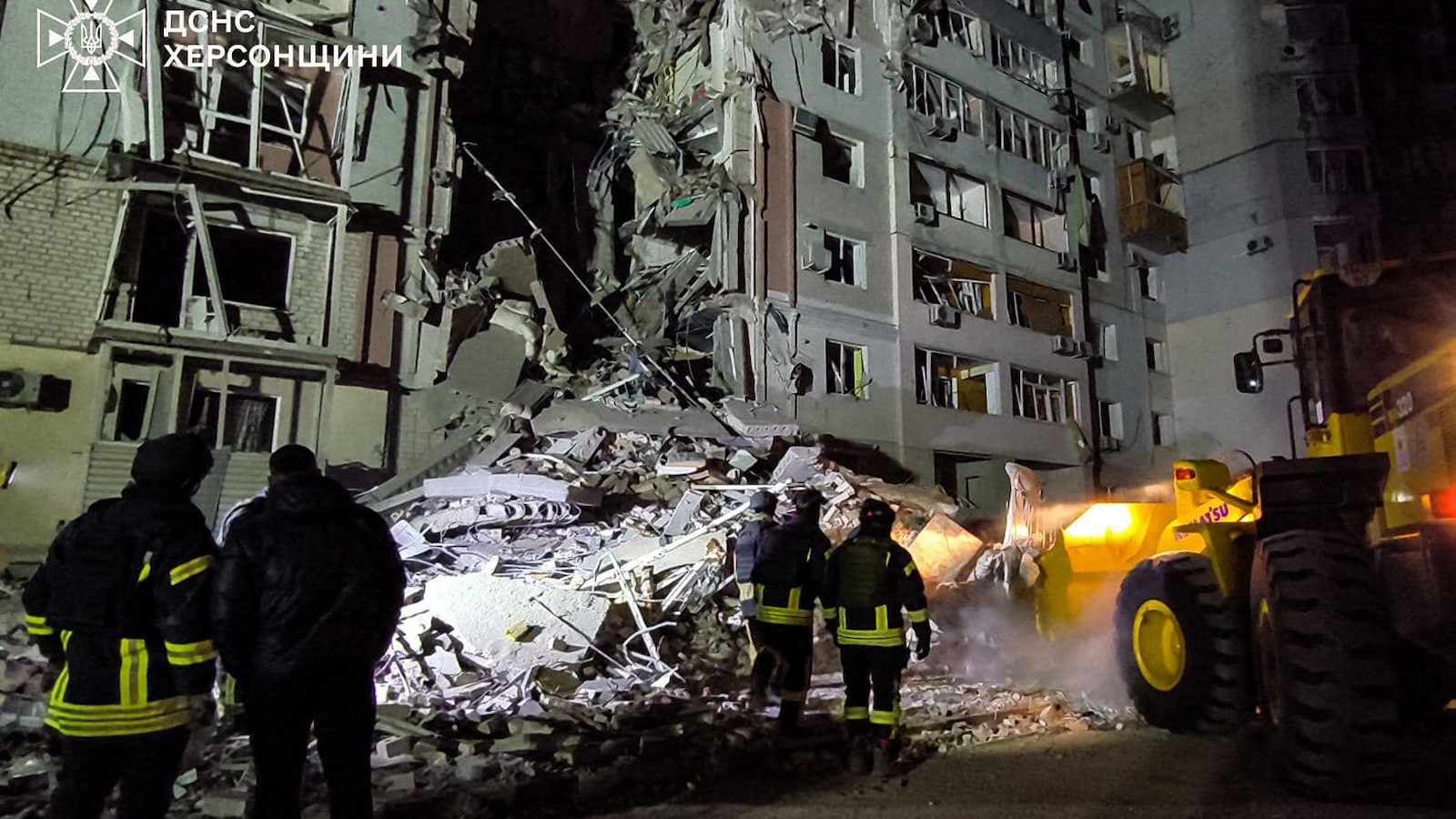Officials from the United States and Russia will meet again within two weeks to discuss the ending of the war in Ukraine after re-establishing diplomatic relations with this week’s meeting, according to a senior Russian official.
The officials will meet in a yet-to-be disclosed third country, following their first talks in over three years in Saudi Arabia.
There was an “agreement in principle” for the two sides to hold consultations to discuss “irritants” in the countries’ relations, Deputy Foreign Minister Sergey Ryabkov told Russian state media.

Russian President Vladimir Putin attends a meeting with judges of the domestic courts in Moscow, Feb. 20, 2025.
Sputnik/Alexey Nikolsky/Pool via Reuters
Before that next round of talks, first there will be a meeting between the directors of relevant departments from both sides, Ryabkov said.
The Kremlin is in full agreement with the Trump administration that the Ukraine war should be settled through “diplomatic talks,” and that it is “essential to establish peace as soon as possible,” Kremlin spokesman Dmitry Peskov told reporters Thursday. Just a day before, President Donald Trump called Ukrainian President Volodymyr Zelenskyy “a dictator” and questioned his legitimacy.
Peskov said the Biden administration “never came up with any objective to initiate a peaceful process.”
“[The Trump administration talks] about the need to establish peace as soon as possible and do it through negotiations,” Peskov said.
The U.S. mission to the United Nations has crafted a short draft resolution marking the three-year anniversary of the beginning of the war in Ukraine that does not attribute blame for the conflict, according to a U.S. official familiar with the matter.

President Donald Trump stands in the Oval Office of the White House, on the day Howard Lutnick is sworn in as U.S. Commerce Secretary by Vice President JD Vance, in Washington, D.C., on Feb. 21, 2025.
Nathan Howard/Reuters

Ukraine’s President Volodymyr Zelenskyy gives a press conference in Kyiv on Feb. 19, 2025.
Tetiana Dzhafarova/POOL/AFP via Getty Images
Russia launched a full-scale invasion of Ukraine in February 2022.
It’s not clear at this point whether that draft resolution has been completed and formally put forward for consideration, but the news comes as the U.S. has so far declined to sign onto another draft resolution penned by the other nations of the G7 that condemns “Russian aggression,” the U.S. official said.
U.N. resolutions are non-binding but can send a powerful message regarding countries’ positions on world matters.

This handout picture taken and released by Ukrainian State Emergency Service, on Feb. 20, 2025, shows rescuers working outside a residential building partially destroyed after a Russian air strike in Kherson.
Handout/Ukraine Emergency Service/AFP via Getty Images
Negotiations in Saudi Arabia
During this week’s negotiations on Ukraine in Saudi Arabia, Russia asked that the U.S. withdraw NATO forces from all of eastern Europe, according to the chief of Romania’s presidential office.

Secretary of State Marco Rubio, second left, meets with Saudi Foreign Minister Prince Faisal bin Farhan Al Saud, Saudi National Security Advisor Mosaad bin Mohammad Al-Aiban, U.S. National Security Advisor Mike Waltz, Middle East envoy Steve Witkoff, Russian Foreign Minister Sergei Lavrov, right, and Russian President Vladimir Putin’s foreign policy advisor Yuri Ushakov, at Diriyah Palace, in Riyadh, Saudi Arabia, Feb. 17, 2025.
Evelyn Hockstein/Pool via AP
This means Russia is still making the demand that President Vladimir Putin made right before invading in 2022, requesting that NATO withdraw its forces from all countries that joined after 1997, most of the former Eastern Bloc countries that became members after the end of the Cold War.
The Biden administration and all NATO members rejected that demand. Countries like the Baltic States are very fearful of being left unprotected from an aggressive Russia.

In this handout picture released by the official Saudi Press Agency, Secretary of State Marco Rubio shakes hands with Russian Foreign Minister Sergei Lavrov during their meeting at Diriyah Palace, in Riyadh, Saudi Arabia, on Feb. 18, 2025.
SPA via AFP via Getty Images
“The United States has refused, this time, but there are no guarantees [that the same request will be rejected in the future],” said Romanian official Cristian Diaconescu in an interview with Antena 3.
“[Russians’] expectations are that at some point the U.S. would convince their European partners to withdraw the NATO security zone to the level of 1997. So that we, those who joined the Alliance after 1997, would no longer benefit from these guarantees,” Diaconescu said.
-ABC News’ Shannon Kingston contributed to this report

